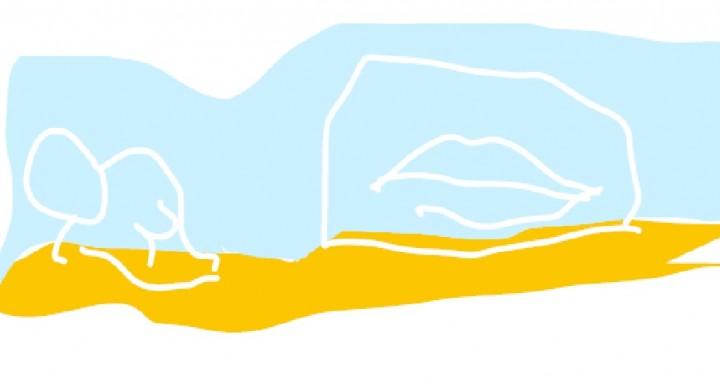Are we capable of becoming inelegant?
Reflections on inelegant engagement, and how it might disrupt our sector.

29 / 04 / 2020
Our lives are currently dominated by Covid -19. Whilst this blog post, and the workshop it is based on, were not originally about Covid-19, currently it feels impossible to imagine anything not being about it.
The intent and approach of the workshop that I ran at Engage 2019 were shaped by another global crisis. HIV/AIDS decimated communities, reshaped cities and changed the future of sex. It was an occurrence so profound it changed what it meant to be human. To paraphrase Sarah Schulman, there are two distinct types of AIDS; AIDS of the past, and, ongoing AIDS. Neither is over.
This too will happen with Covid-19. It will be over in the sense that its occurrence and affects will be folded into and normalised within human society. This will not be achieved without loss nor without grieving for what and who was lost. Whilst the original Kübler-Ross grief cycle consisted of five stages; Denial and isolation, Anger, Bargaining, Depression, and Acceptance, it has been argued that we need to add a sixth category, Meaning.
Recently, within the engagement sector, there has been a focus on moving towards place-based and community-based engagement. These approaches aim to offer ways to disrupt the current frameworks and infrastructures wherein public engagement happens by situating or orientating engagement within and towards a tangible and pre-defined community or place, outside of the establishment.
A sceptic may argue that these approaches do not solve the classic engagement problem of “who is your public?”, but, instead state your public must now fit within arbitrarily defined criteria. These approaches do not promote engagement professionals to ask “to what purpose?” but merely to replace the nebulous and meaningless “public” with the pseudonyms “community” or “place”. What this framing does not automatically do is to require the PE professional to reflect on and disrupt the processes that will produce the engagement with/for/at that public/community/place.
This shift mirrors that of arts funding bodies, who attempted to reform their policies via the lens of cultural democracy which aims to elevate the citizen from mere passive consumers to active participants and creators, of culture. This trend can be observed within, and at the periphery of, all forms of engagement.
Science as Culture, Art as Culture, X as Culture, all lead with the, seemingly democratic, premise that “X" belongs to everyone and therefore everyone has the right to contribute to, and benefit from X, whatever X may be. However, these initiatives are focused on outputs, not processes. Meaning that, despite being elevated to creator, citizens are denied the opportunity to define what that culture is. To participate is to agree with the definition given to them. In short, they are being asked to buy their inclusion by working for the same institutes and systems that originally excluded them.
To me, this does not sound particularly disruptive. To me, this sounds like the master remains in their house with every tool accounted for.
I was curious to see what would happen when PE professionals were asked to take cultural democracy seriously; to redefine their processes and free themselves of their current working practices. To walk out of their institutes, and imagine ways in which they may be directed by and work for a community in order to self-define and realise their own vision of engagement.
I used the concept of inelegant engagement as a framework for the workshop. By reflecting on methods used in queer activism, particularly early AIDS activism, and a visual analysis of two video essays, I wanted participants to consider how we, as engagement professionals, frame our invitations, construct our publics and operate within institutional structures.
You can read a summary of what we learnt together in the report below. Are there ideas here that you feel could lead to the sector becoming engagingly democratic, or are these institutionalised ideas that remain unrealistic or infeasible? What does the recent low success rate in awards from community and place based funding streams tell us? Are we failing to translate the vision of the funders or are the funders proposing ways of working that are incompatible with the sector? Did anyone, at any point, ask the communities or the places?
Might now be the ideal moment to look back on how marginalised communities approached their own health crisis? Can we learn from the new ways of working and being together that emerged from their anger, their grief and their fight. How can we grow as a sector and move from recognising and endorsing community principles to the adoption and embedding of community behaviour? How are we creating meaning?
